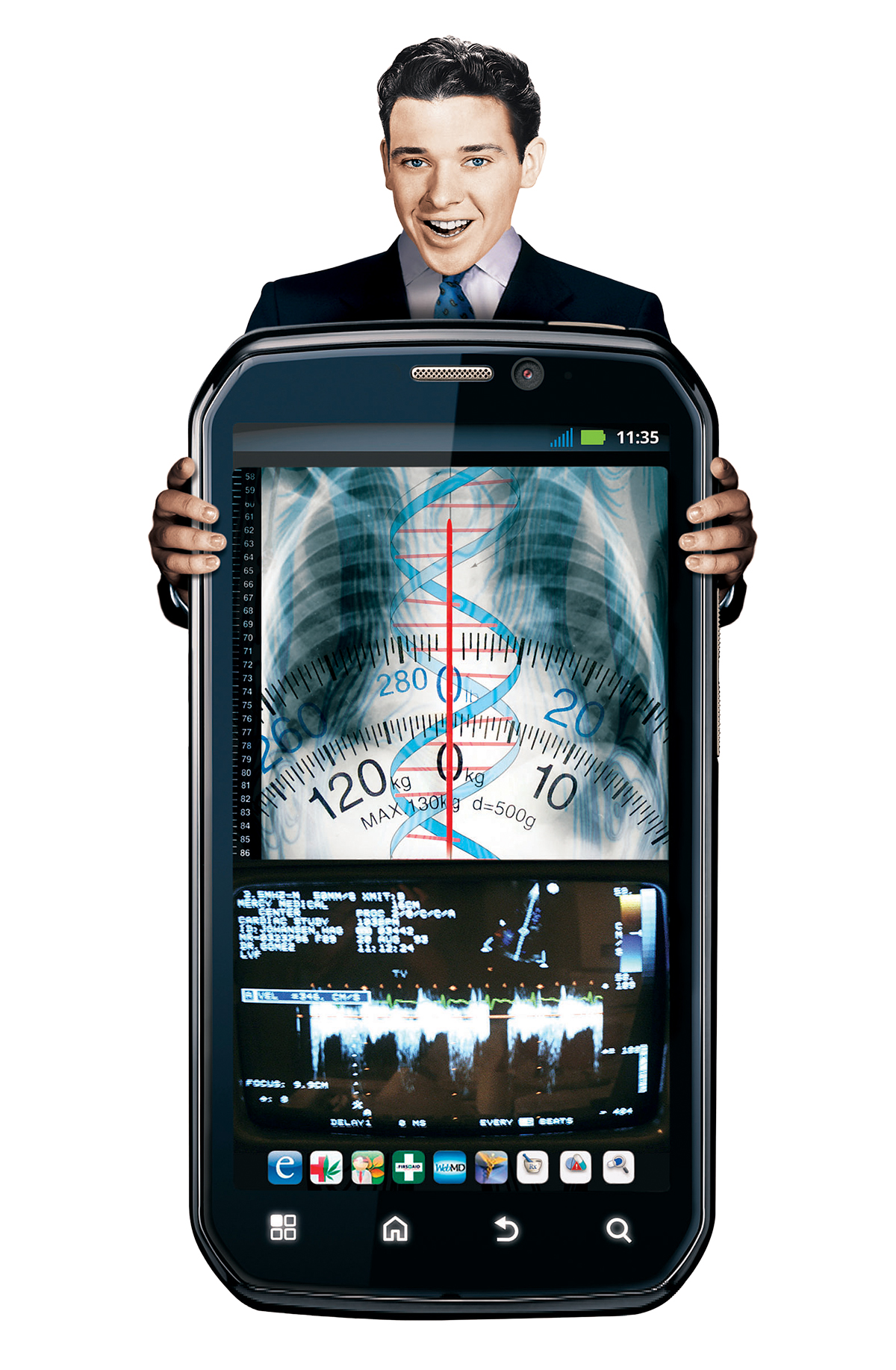So Appy Together

Illustration by Viktor Koen
A few years ago, some very smart people started to wonder what would happen if we tracked ourselves as closely as do the marketers who scarf up the digital breadcrumbs we leave with our every move on the Internet. (Our credit card purchases, GPS usage, and DVR activity are just a few of the other ways corporate America keeps tabs on us.) Could the same kind of data big business is always collecting help us learn more about ourselves? That question gave rise to the Quantified Self (QS) movement, a term coined by Wired editors Gary Wolf and Kevin Kelly in 2008. QS was modeled on the Homebrew Computer Club, a group of Silicon Valley tech hobbyists whose biweekly gatherings led to the creation of the personal computer (Steve Jobs was a member). Early QS adherents made elaborate Excel spreadsheets or developed their own computer codes to keep track of life in minute detail. They measured things like precisely how much caffeine they needed to hit maximum productivity, or how diet and sleep affected their athletic performance. One member discovered that eating half a stick of butter each day enhanced by 5 percent his ability to do simple math problems. Life is messy, they reasoned, whereas data is efficient, rational, and beautiful.
The group at NuVu is one of more than 40 QS chapters that meet regularly in 18 countries. And, just as the Homebrew Computer Club brought forth the PC and Mac, QS has influenced the creation of apps and gadgets that have brought tracking to the masses. A movement that was once the domain of hackers and techies is now available to all of us, and it’s spreading. MobiHealthNews estimates that there will be 13,000 health-related apps in the iTunes store by this summer. And according to Wellesley-based BCC Research, the health technology industry, which was valued at more than $7.4 billion in 2011, is projected to more than double to nearly $17.5 billion by 2016. Body sensors littered the floor of the International Consumer Electronics Show in Las Vegas in early January. That same month, a little company called Nike unveiled a new activity-tracking device — the FuelBand.